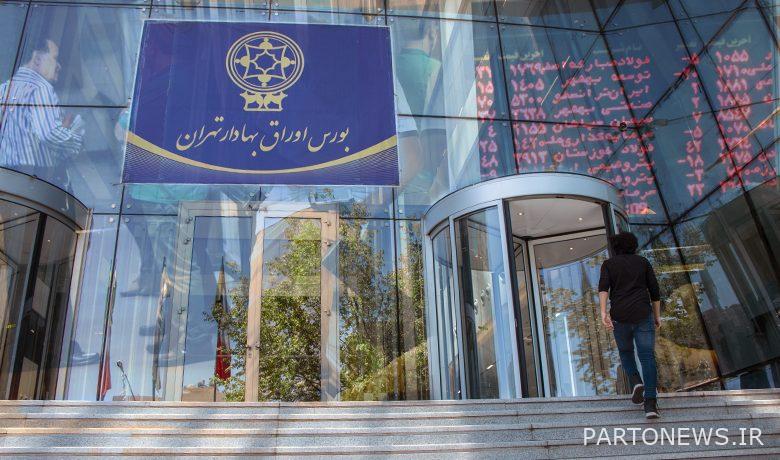Why is the stock market still falling? / In which stock exchange industries should we invest?

According to Tejarat News, the capital market lost 1.4 million units in the last week of September, and now various speculations are being made about the continuation of the reform process in the market. What is the expert analysis of the continuation of the market trend?
Salman Nasirzadeh, a stock market expert, said about the current market trend: “Changing the market trend needs a stimulus.” For example, in June, two factors contributed to the return of the total index from the range of one million and 100 thousand units and the improvement of expectations.
Regarding the reasons for market growth in June, he said: “The first factor of significant market growth was the forward-looking P / E ratio below the risk-free interest rates of leading industries such as petroleum refining, metals and investment.”
Nasirzadeh added: “Another factor was the increase in the dollar rate to the range of 20,000 tomans, and due to the developments in the political economy, the expectations of the dollar rate were higher than that level.” The transfer of power from the Twelfth to the Thirteenth Government also reduced the likelihood of interventionist actions in the market, which prevented further market decline.
What was the government’s role in the stock market crash?
The market expert said in another part about the reasons for the lack of market growth: At present, the growth of 45% of the average total index and the prospective P / E increase in the mentioned industries from 5 units to more than 7 units along with the growth of the dollar price to 28 One thousand tomans has been one of the causes of the stock market decline.
He explained: The centralization of the thirteenth government and the beginning of executive operations in the domestic economy and foreign relations marked a further decline in the market. Expectations of interventionist decisions to control inflation and deficit-reduction programs such as bond issuance and interest rate hikes have also reduced the set of expectations for continued growth at this point in time, which is seen as a factor in correcting prices.
Nasirzadeh says: “It is believed that in the second half of the year, markets will be more volatile due to the government’s plans. This issue can lead to ambiguities that lead to conservative behavior for investors.”
He explains the reason for the conservative behavior of shareholders: The most important part of the market concern in the short term is the increase in nominal interest rates. Statistics show that annual inflation has risen to 45%, the interbank interest rate is in the range of 19% and the real interest rate is around 26%.
The effect of bank interest rates on creating stock market ambiguities
“Currently, with a short-term view, the government is likely to raise the nominal interest rate, but the main weight of government operations should be in the psychological sector and reducing inflation expectations, which can reduce political tensions and return to the international arena,” he said. Adjust inflation expectations. An event that took place during the first term of Rouhani’s government and continued until the end of 2017. Certainly, if this sector is not efficient, the effect of rising nominal interest rates may fluctuate in the short term, but real interest rates will still be negative, and on the one hand, the government will be more indebted, more pressure on banks, and more liquidity, with destructive effects in the medium term. It will accelerate the inflation jump.
In another part of the conversation, Nasirzadeh said: “The whole market has re-entered the vicious cycle.” Negative expectations have fallen and the buyer side has weakened again. In the meantime, the market needs time to get out of this situation. September and summer quarterly reports can help improve the market analytical environment, which will be available and processed by analysts from the second half of October.
“Part of the market ambiguity is a government decision that needs to be clarified over time, but despite the political and economic ambiguities, there will be no further decline in the dollar, which will shorten the time,” he said. There is a price correction in the market.
What effect do global markets have on our stock market? In which industries should we invest?
Nasirzadeh pointed to the situation in global markets and its impact on the stock market: There are ambiguities in the global market. This could be a shock to global, commodity-driven markets, especially with the news of the possible bankruptcy of China’s largest mass producer and the resurgence of memories of the 2008 crisis beginning with Lehman Brothers.
Nasirzadeh also said about the impact of Borjam in the market: “If Borjam’s negotiations are concluded, it is likely that there are structural differences with Borjam in 2015 and in the short term it will have a temporary effect on the dollar exchange rate. Transfers and banks will be considered by stock market activists in the short term.
He added: “But if we assume lasting political peace in the long run, all industries will certainly be able to improve structure and performance, but there are many doubts about the stability of political peace.”
Nasirzadeh said about the stock market situation in the long run: “Regarding the forecast of the stock market trend, assuming that the structural situation does not change, the market is expected to be in the range of one million and 100 thousand units as the market floor and two million and 100 thousand units as the historical resistance.” To take. Also, until we see changes in the political and economic spheres, the market will fluctuate for a while, but it will definitely be upward in the long run, regardless of the short-term fluctuations of the stock market trend due to the structure of the inflationary economy.
Read the latest stock market news on the Trade News page.

